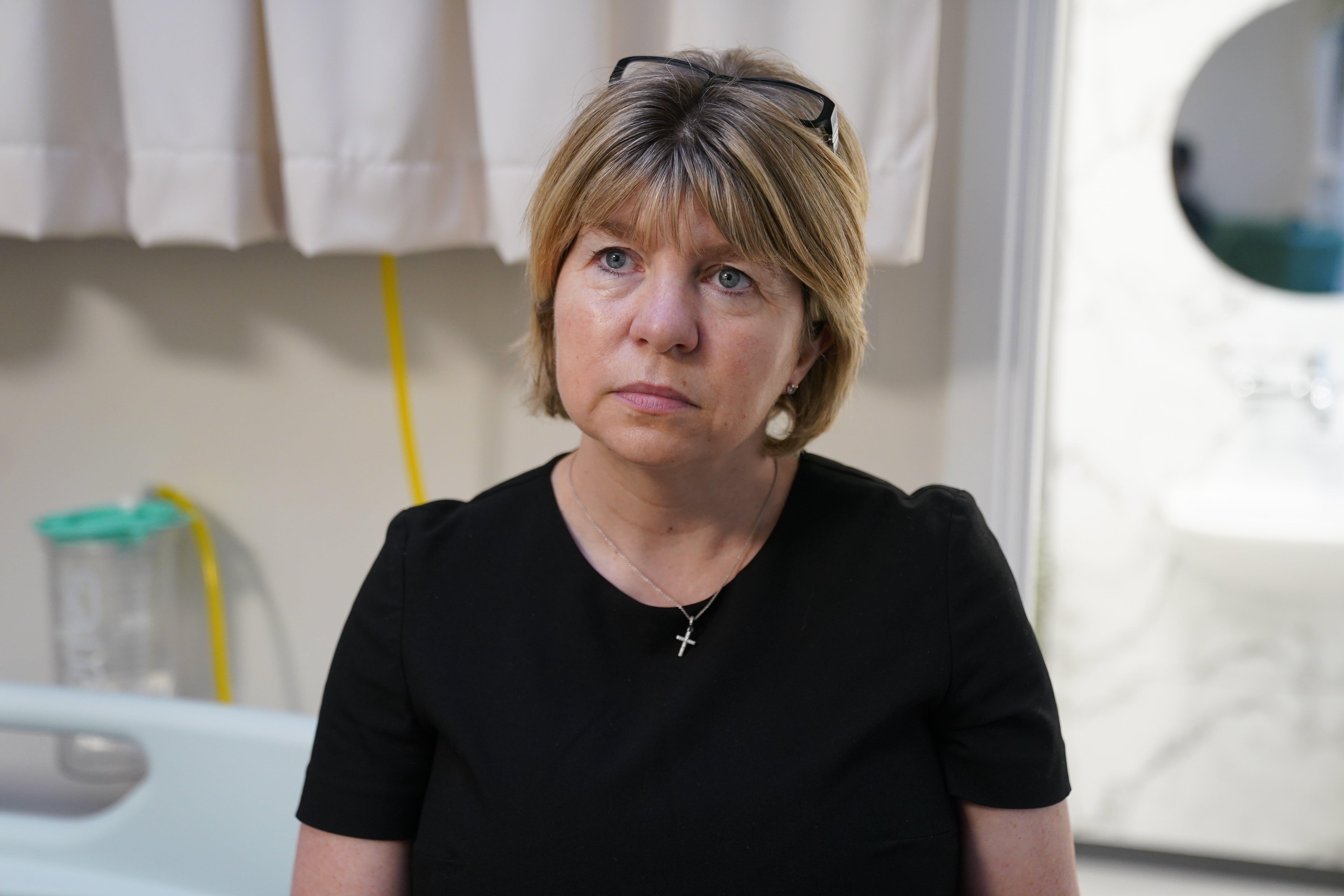NHS must stop sending eating disorder patients to die, watchdog says
Exclusive ‘The current system is not working and patient safety is paying the price’ says health ombudsman Rob Behrens

NHS teams are giving up on patients with severe eating disorders, sending them for care reserved for the dying rather than trying to treat them, a watchdog has warned the government.
In a letter to minister Maria Caulfield, the parliamentary health service ombudsman Rob Behrens has hit out at the government and the NHS for failures in care for adults with eating disorders despite warnings first made by his office in 2017.
The letter, seen by The Independent, urged the minister to act after Mr Behrens heard evidence that eating disorder patients deemed “too difficult to treat” are being offered palliative care instead of treatment to help them recover.
Palliative care is offered to patients whose ailments are untreatable to limit their pain and other distressing symptoms.
The ombudsman first warned the government that “avoidable harm” was occurring and patients were being repeatedly failed by NHS systems in 2017, following an investigation into the death of Averil Hart.
The 19-year-old died while under the care of adult eating disorder services in Norfolk and Cambridge. In 2021, following an inquest into her death and the deaths of four other women, a senior coroner for Cambridge, Sean Horstead, also sent warnings to the government about adult community eating disorder services.

Last year The Independent revealed more than 8,000 adults were waiting to be seen by community eating disorder services, while patients reported being kicked off services for being “too thin.”
Reports also revealed controversial statements from a senior psychiatrist based in Norfolk who said that for patients whose eating disorder has lasted for longer than five years, only those who ask for help should be treated.
She argued: “The current ‘bed crises’ would be alleviated, as only the patients who benefit from inpatient treatment would be admitted.”
Have you been impacted by this issue? Email rebecca.thomas@independent.co.uk
The PHSO’s 2017 report called ‘Ignoring the alarms: How NHS eating disorder services are failing patients’ found there was a lack of awareness among doctors and nurses about eating disorders and a lack of trained specialists.
It called for the government and NHS to review capacity within adult eating disorder services.
In 2019 the Public Administration and Constitutional Affairs Committee warned the government not enough progress had been made since the PHSO’s report.

Mr Behrens’ letter to Ms Caulfield said: “the current system is not working and patient safety is paying the price. Eating disorder services have not been able to keep pace with increasing demand…
“The challenges in accessing primary care, the lack of funding for and understanding of eating disorders, including within the medical profession, create multiple barriers that prevent people accessing the help they need.
“Above all, I am gravely concerned when I hear from campaigners and clinicians alike that palliative care pathways, instead of active treatment, are being offered to patients deemed too difficult to treat. Eating disorders are treatable, and those affected have the right to access services that focus on recovery.”
He said despite some improvement since 2017 “limited progress in addressing the poor quality and effectiveness of eating disorder services is causing avoidable harm to patients who are being repeatedly failed by the system.”
He added: “In 2019, the Government promised to prioritise eating disorder services. This is a life-threatening issue and I am writing to ask that the Government takes urgent action to fulfil that promise.”
A Department of Health and Social Care spokesperson confirmed eating disorder patients should not routinely be put into palliative care:
“We understand the concerns raised and have increased funding for mental health services, including eating disorders, by £4.5 billion since 2018/19, as well as an additional £54 million to expand children and young people’s services across the country.
“NHS England is responsible for using this funding to support people with eating disorders and we’re helping to grow the number of healthcare staff able to treat people with the condition to expand access.”
For anyone struggling with the issues raised in this article, eating disorder charity Beat’s helpline is available 365 days a year on 0808 801 0677. NCFED offers information, resources and counselling for those suffering from eating disorders, as well as their support networks. Visit eating-disorders.org.uk or call 0845 838 2040
Join our commenting forum
Join thought-provoking conversations, follow other Independent readers and see their replies
Comments
Bookmark popover
Removed from bookmarks